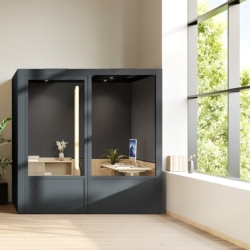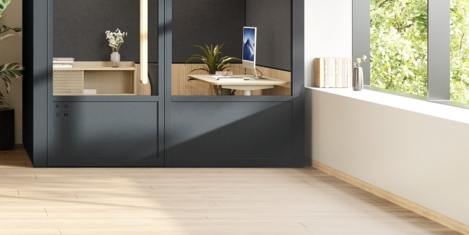June 24, 2025
ROOM Launches The Room Collection: flexible architecture for today’s hybrid workplace
 ROOM, the leading modular architecture company behind the award-winning Phone Booth and pioneer in flexible workplace design, has introduced The Room Collection: a new series of scalable and adaptable rooms, designed to provide privacy in open floorplans and meet the dynamic needs of today’s businesses and office workers. A major pain point for employees is working in an office that hasn’t yet been optimized for the hybrid workplace. Simultaneously, businesses may find it difficult to swiftly adapt to changing workplace needs. While insufficient meeting spaces, poor acoustics and back-to-back virtual meetings plague workers, inflexible leases and hefty construction costs prevent business leaders from adapting accordingly. The Room Collection helps solve this through its easy-to-assemble, soundproof modular office system that can evolve to meet the needs of businesses at any stage. (more…)
ROOM, the leading modular architecture company behind the award-winning Phone Booth and pioneer in flexible workplace design, has introduced The Room Collection: a new series of scalable and adaptable rooms, designed to provide privacy in open floorplans and meet the dynamic needs of today’s businesses and office workers. A major pain point for employees is working in an office that hasn’t yet been optimized for the hybrid workplace. Simultaneously, businesses may find it difficult to swiftly adapt to changing workplace needs. While insufficient meeting spaces, poor acoustics and back-to-back virtual meetings plague workers, inflexible leases and hefty construction costs prevent business leaders from adapting accordingly. The Room Collection helps solve this through its easy-to-assemble, soundproof modular office system that can evolve to meet the needs of businesses at any stage. (more…)


































November 8, 2024
That conversation about hybrid working? Same as it ever was
by Marcus Bowen • Comment, Facilities management, Flexible working, Property